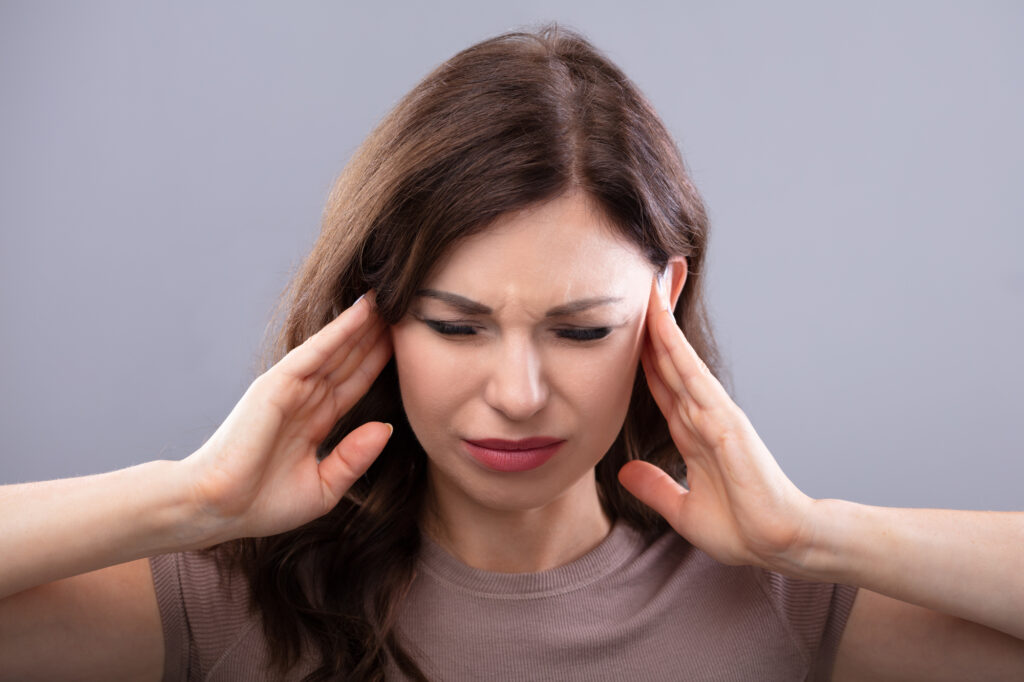What’s The Best Way to Floss
We all know we should floss, but it can be tough. Part of this is because flossing can feel like an extra task in an already busy day, but it...

Are you one of the millions who suffer from chronic headaches? Even if you have tried over-the-counter pain relievers and other headache remedies, recurring headache pain and discomfort can derail your day, often affecting your work, family, and more.
But did you know that the root cause of your recurring headaches might be hiding in your mouth? Sometimes, seemingly unrelated dental health issues can be a headache trigger.
Headaches are a common and often debilitating problem that can affect anyone, are any age. They are characterized by pain or discomfort in the head or upper neck region and can vary in intensity from a mild, nagging ache to severe, throbbing pain.
Headaches can be classed into various types, including tension headaches, migraines, sinus headaches, and more, each with its unique set of symptoms and triggers. While not all types of headaches are well understood, we do know that most headaches result from issues with the vascular, muscular, and other structures in the head, face, jaw, or neck areas.
Occasional headaches are a normal part of life, however, chronic or frequent headaches shouldn’t be ignored, as they may indicate underlying health issues, including those related to dental health. Understanding the nature of headaches and their potential causes is helpful for effectively managing and preventing them.
One common dental issue that can lead to headaches is bruxism, which is the clenching or grinding of teeth, often during sleep. This constant pressure on your teeth and jaw muscles can result in tension headaches. Pain from this area can radiate from your jaw to your temples, causing discomfort that lingers throughout the day.
Temporomandibular joint (TMJ) disorders are another dental problem associated with headaches. The TMJ is responsible for the movement of your jaw, and any dysfunction in this joint may be a possible trigger for severe headaches. TMJ-related headaches can often be misdiagnosed as migraine. It is also thought that, for patients who do suffer from migraine headaches, TMD can be a trigger.
In some cases, problems with your bite alignment or misaligned teeth can contribute to the development of headaches. When your upper and lower teeth don’t fit together correctly, it can result in added stress on the jaw muscles, leading to tension headaches or even migraines.
When dental issues are left unaddressed, they can escalate and lead to chronic headaches. Tooth decay, when left untreated, can progress and lead to cavities or even tooth abscesses. The pressure and pain from these infections can radiate to your head, resulting in sinus headaches or tension headaches.
Similarly, gum disease can cause inflammation throughout your body. This systemic inflammation can trigger headaches, making it crucial to address gum health for your overall well-being.
Now that you’re aware of the connection between dental health and headaches, here are some steps you can take to prevent or alleviate these issues:
Because stress is a common cause of bruxism and TMJ disorders, incorporating stress-reduction techniques into your daily routine can help prevent dental-related headaches.
Brushing and flossing regularly, along with regular professional cleanings, are the best ways to prevent tooth decay and gum disease. A healthy mouth is less likely to contribute to headaches.
If you suffer from bruxism, your dentist may recommend you wear a custom mouthguard to protect your teeth and jaw from grinding, ultimately reducing the risk of tension headaches.
If your headaches are related to bite or alignment issues, your dentist can potentially recommend orthodontic treatments such as Invisalign to correct the issue, potentially alleviating headache symptoms.
Botox has been shown to be an effective treatment for TMD and for chronic migraine. And, perhaps not surprisingly given the connections we’ve discussed in this article, dentists are often trained and qualified to give Botox injections for chronic pain.
Visiting your dentist regularly for can help catch dental problems early and prevent them from escalating into headache-inducing issues. Let us know if you suffer from chronic headaches at your next dental appointment, and we can help you look for possible oral health-related triggers.
By maintain good oral health and addressing dental issues promptly, there’s a chance you can significantly reduce the frequency and intensity of headaches. If you suspect one of these dental issues may be contributing to your chronic headaches, schedule an appointment with our office today.